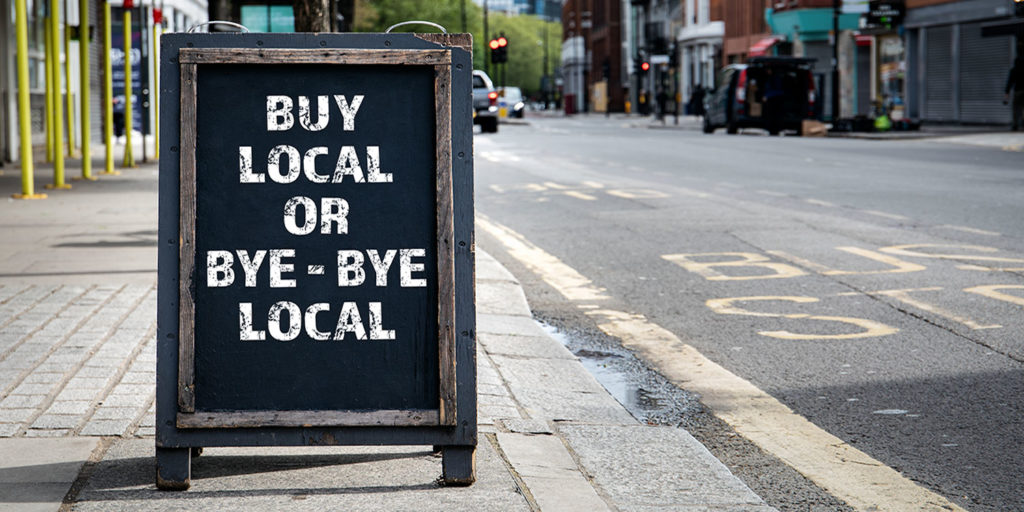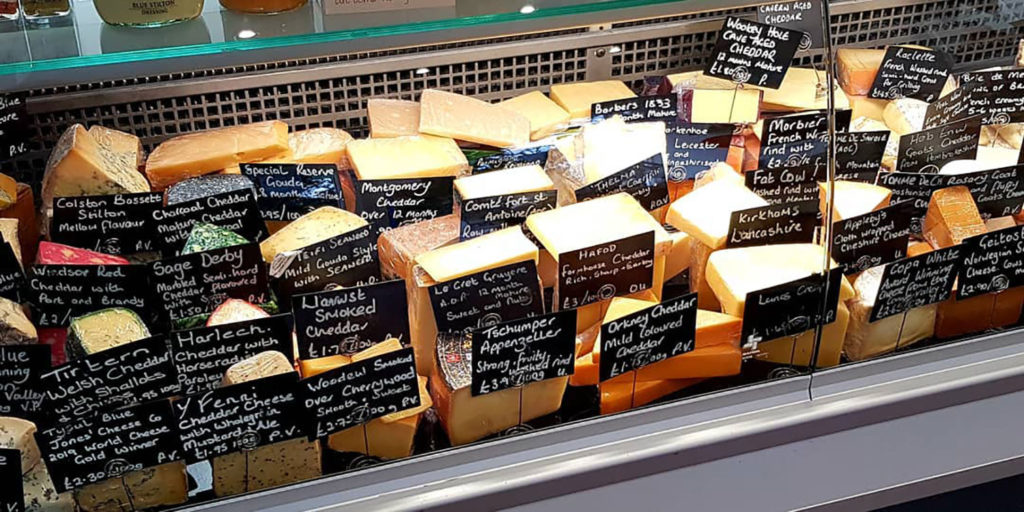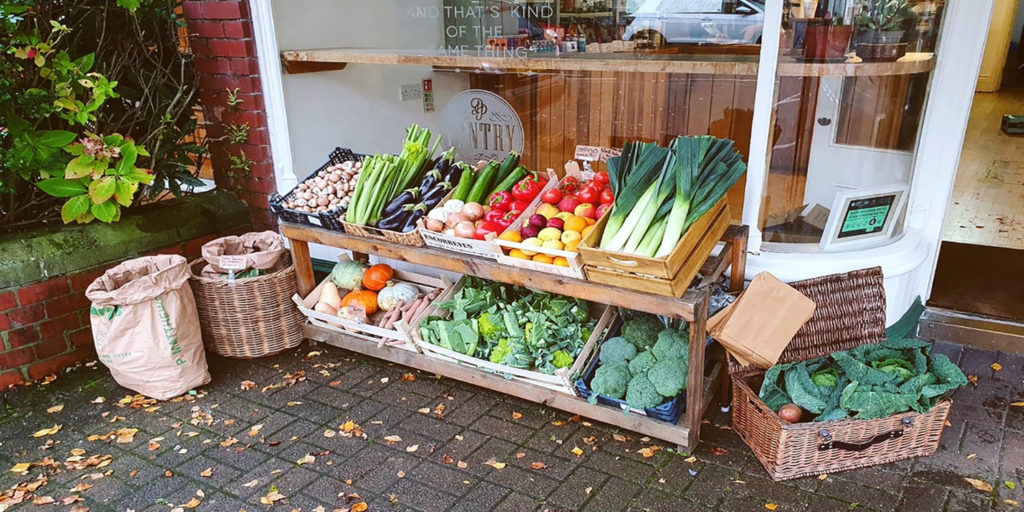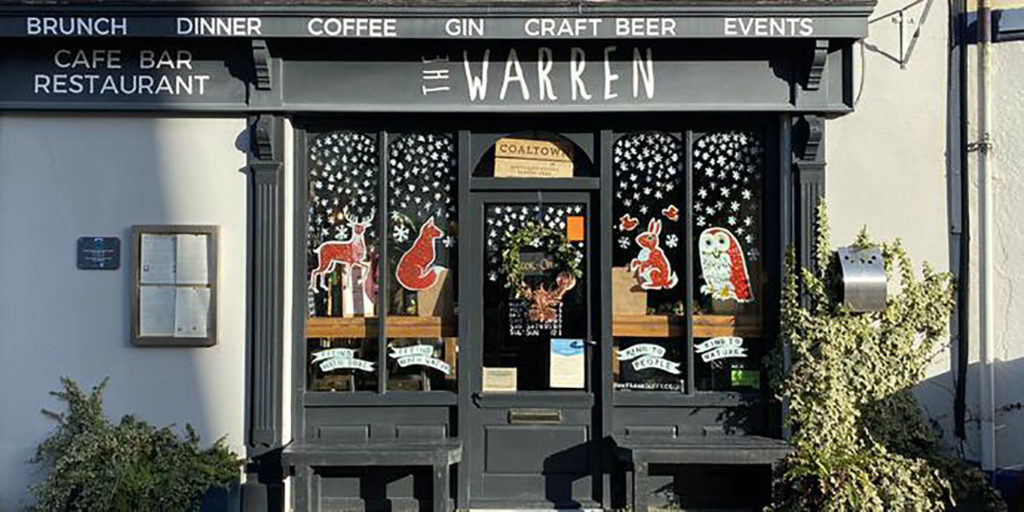Three Welsh independents have used their creativity and relationships with local and seasonal producers to survive a year in lockdown

Conversations surrounding the effect of the last year on the food and retail industry often results in grimaces of acknowledgement that it has been a rough ride. Whether it’s financial difficulty or that the nature of business facilities do not lend themselves to the current tumultuous climate, independent food services have been dropping off our highstreets week on week.
The Federation of Small Businesses Wales (FSB) released a Small Business Index from October to December highlighting that it has hit its second-lowest point in a 10-year history. It is no surprise that accommodation and food services came out the worst, with a -108.1 index score from October to December and 10.7% of businesses considering closure as we entered the new year.
It is a grim time for many, but certainly not for all. Consumers are becoming more aware of the local businesses in their communities, and these businesses are listening avidly to their needs. This active observation has allowed such independents to reinvent themselves in accordance, becoming chameleons of their trade, eating innovation for breakfast. Not only is this flexibility keeping these businesses afloat, but it is propelling them into the forefront of their communities by strengthening them with their service. This has created a full circle support system, from local producer to retailer to consumer, making local services the destination, no longer relying solely on passing trade.
Here are three Welsh businesses that have found success in their creativity and drive to support their customers and local producers.
The Local Hero
Cheryl Parry set up the Grate Cheese Deli, Colwyn Bay, North Wales in June 2019 with the goal to support local produce and promote fair pricing to attract a variety of customers. The deli had not been open a year before the country went into the first lockdown, and although Cheryl says that she knew the business had potential, Covid-19 could have easily broken them. “The business was set up with my husband’s pension and we had no other finance in place, so if we were going to make it work, we had to move with it,” she says.
Cheryl’s flexible approach gave her the idea to stock essential items and deliver them to her customers and those in the community that needed aid. “A lot of my customers were older and weren’t clued up with internet shopping, and they were panicking,” she says. The Deli informed local councils to spread the word, and soon they were delivering up to 20 orders a day within a 20-mile radius. “If they needed it, we tried to get it,” Cheryl says.
Due to the young age of the business, it is unclear whether it lost income over lockdown as footfall had not been established. “I have been happy with how the business has grown,” Cheryl says, her determination to support the community has given the business a diverse and loyal customer base. Cheryl says that her customers are allowing the business to thrive with the absence of tourism that it previously would have relied on.
If they needed it, we tried to get it.”
Cheryl began creating grazing boxes of local produce for customers to order online or face to face; the bespoke Valentines Day boxes having booming success. Cheryl tries to support as many local producers as she can, showcasing produce such as Austin Garden Kitchen’s chutneys; a not-for-profit organisation that grows their own produce and teaches adults with learning disabilities to harvest and create them. Cheryl is looking forward to growing the deli further over the next 12 months. “I intend to get a personal alcohol license and premise license so I can stock local wines, gins and vodkas.” Cheryl says.

The heart of the community
Melissa Boothman is the owner of Pen-Y-Lan Pantry, Cardiff, and set up her business in 2013 with the ambition to support and showcase local Welsh produce seven days a week. As a former hairdresser, Melissa worked weekends and so could never go to her local farmers markets which at the time were one of very few places that sold local produce. Melissa says, “Our values are to support local communities and make them stronger.”
The Pantry was built on a flexible business plan, as Melissa understands that consumer needs are constantly changing, “I wanted to run this business sustainably,” she says. Although registered as a limited company, Melissa put all the profits back into the business for the first five years to create a strong foundation to survive. “It’s like having a child, you put everything you can into it early so it becomes strong and self-supporting.” Melissa said.
A reinvention of the pantry took place after they closed for the first lockdown, transitioning from sit in café to a corner shop dedicated to showcasing local produce. “We listened to what our community needed, and they’ve really shown the love back,” Melissa says. This initiative has allowed the pantry to stay open through each lockdown, teaming up with more local producers alongside creating and selling their organic vegetable boxes. Selling the vegetable boxes in spring 2020 was a slow starter as people were nervous about the safety of collecting in store. As customers started to become more comfortable with entering shops the numbers increased and the pantry now hits their maximum of 35 orders each week.
It’s like having a child; you put everything you can into it early so it becomes strong and self-supporting.”
Melissa gets the majority of her vegetable produce from family run welsh wholesalers Watson & Pratt‘s, who share the same ethos as the pantry of ecological sustainability. Although Pen-Y-Lan Pantry are down by a third in growth take, the lower utility and input costs of running a shop compared to a café are much less, which has balanced out their profits. “We hope to take this business model into the future, even out of lockdown,” Melissa says.

The green champion
The Food Made Good Awards Chef of The Year 2019 Deri Reed set up The Warren Carmarthen, in 2016. Deri’s goal was to showcase local produce, with a specific drive towards sustainability. As energy suppliers invested into renewable energy due to climate change being at the forefront of our daily news, prices became more affordable, which has allowed the Warren to run on 100% renewable energy for the last year.
The business compost food waste at home and with Merlin’s Magic Compost, a local company that sell their compost to enterprises, charities and the public. “The Warren focuses on local, seasonal and ethical produce,” said Deri, who is keen to supply the best quality produce whatever the cost. Deri gets his vegetables from Blaencamel Farm, a 25-acre organic farm that is carbon negative.
Deri decided to close The Warren’s doors a week before lockdown was announced. “Because people were told to stay home, only a third of our customers were turning up and it wasn’t affordable to keep it open,” he says. Deri doesn’t regret this decision, as it allowed him and his team of 11 (six are now furloughed) to create a business plan that would give them a good foundation to survive over the coming year.
If we do the same thing week on week, customers will go elsewhere for something different.”
The Warren has a strong community of customers who have stuck with them throughout the pandemic. “We have to be doing something different frequently because our customer base is so small,” Deri says, “If we do the same thing week on week, customers will go elsewhere for something different.” Deri’s abundance of creativity and ideas have led The Warren from takeaways and cook at home meals since spring 2020, to the recent addition of make your own pizza boxes. Deri says, “it has allowed us to support our local producers and giving our community something affordable.”
The Warren sent out 70 (more than they would take in one evening sitting) four course heat at home meals for Valentine’s Day and have now moved onto a Burger Night pop-up that allows customers to order and pay online. “We’re still fighting, and have fantastic support from our customers,” Deri said.

What can you do to support local food businesses?
- Cheryl from The Grate Cheese Deli says, “financial support is so necessary at the moment, support us through delivery, make use of the small shops and notice us.”
- Buy gift vouchers for friends and family for local businesses in their area.
- “If everyone just bought one coffee a week from us, it would have such a huge impact,” Says Melissa from Pen-Y-Lan Pantry.
- Melissa is a huge believer in the power of word of mouth, “we trust our friends and we trust our family, if they tell you our place is great and they love their values, it’s inevitable people will go and seek us out,” She says.
- Write good reviews on places like Trip Adviser and Google Reviews.
- “Social media has been the saviour of our business,” said Deri from The Warren, who urges customers to engage with The Warren and share their posts.
